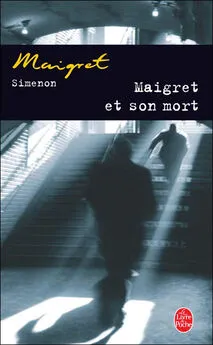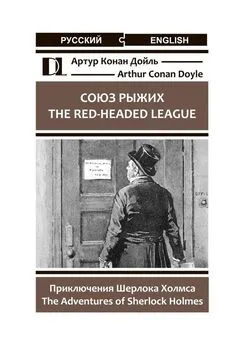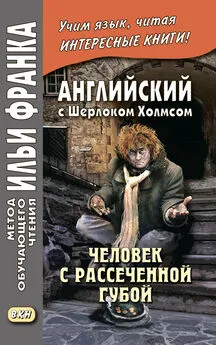John Lescroart - Son of Holmes
- Название:Son of Holmes
- Автор:
- Жанр:
- Издательство:New American Library
- Год:2003
- ISBN:9780451208750
- Рейтинг:
- Избранное:Добавить в избранное
-
Отзывы:
-
Ваша оценка:
John Lescroart - Son of Holmes краткое содержание
John Lescroart offers an engrossing historical mystery that takes us to a small French town in the dark days of World War I-where the rumor is that Auguste Lupa is the son of the greatest detective of all time. And his mysterious legacy may come to light as he attempts to solve the baffling murder of an intelligence agent...
Son of Holmes - читать онлайн бесплатно полную версию (весь текст целиком)
Интервал:
Закладка:
He was sitting again. “So have I. Will you have a beer?”
He reached up to his left and pulled a cord which had been newly strung along the ceiling. Two quick pulls. I looked at him questioningly.
“For Fritz,” he explained. “We’ve worked out a code so that I don’t starve or die of thirst. Two pulls for beer. If anyone else is about, he unlatches the bell.”
As he finished speaking, the door opened and Fritz entered with a tray. Seeing me, he smiled. “Hello, sir. Good to see you.”
Lupa spoke. “Fritz, Monsieur Giraud would also like some beer, and he’ll be dining with us. You will, won’t you?”
“Of course.”
When Fritz had brought the other beer and gone, Lupa poured for both of us, waited for the foam to settle in his glass, took a large gulp, then looked at me. “Well?”
“There’s no smoke rising over St. Etienne.”
He sat immobile, his face showing nothing. With his left hand, he drummed his fingertips on the desktop. He sighed deeply.
“So. In that case, we can do nothing about it. Watkins should be here before long with a report. Did you check the table?”
“No. I forgot.”
He drank. “Hmm . . . well, I have news.”
“So you said.”
“I’ve gotten through to my uncle about your retirement, and he’s persuaded your people to accept your decision, though if you were younger . . .”
I nodded. “You needn’t say it.” If I were younger, I wouldn’t have to worry very much about my future; it would be very short.
“You said you met Paul and Georges today. I had understood that Georges wouldn’t be back until tomorrow. And what is Paul doing in Valence?”
I reported on my day from the time I reached the police station. He listened without moving, leaning back in his chair with his eyes closed. He might have been asleep. When I’d finished, he opened his eyes and, seeing his glass empty, poured another beer.
“So they’re all happy to believe me the culprit. Understandable, I suppose. Anything else?”
“Well,” I hesitated, “yes, actually. Tania and Anna are missing.”
He then did something I never thought I’d witness. His glass was on its way to his mouth when I spoke, and he arrested it midway and set it back on the desk.
“When did you find this out?”
“This morning.”
“Why didn’t you report it immediately?”
“What could you have done? You’re effectively a prisoner here.” I began defensively, angry at myself for not having come by sooner, for allowing myself to be lulled by my smaller duties, my social obligations. After I had run into Paul and then Georges, I’d felt as though I might stumble upon some solution. Twice I’d headed to La Couronne to see Lupa, and twice I’d decided against it. My suffering self-esteem had needed—stupidly, I now realized—to present him with answers, not questions. I had wrongly persisted in viewing Tania’s (and Anna’s) disappearance as my own problem, not our common problem.
“I’m sorry,” I said. “I retract that.”
“No need to,” he said. “It’s close to the truth.”
“No, I should have come immediately. If anything has happened to them . . .”
A trace of humanity appeared in the hard eyes. He, too, knew both sides—the concern and the suspicion. “Tell me about it now,” he said, “and we’ll try to make up for the lost time.”
I filled him in on my search of Tania’s house, how there appeared to have been no struggle. The only inexplicable thing was their failure to tell Danielle.
“Don’t you consider that strange?”
“Yes, rather.”
“Everything else was in order?”
“Perfectly. Oh, and one other thing.”
I took out the photograph and handed it to him. He unrolled it and placed it flat on the top of his desk, staring at it intently. “Yes,” he said absently, “satisfactory. Just as I suspected.” So saying, he rerolled the picture and placed it in his desk drawer.
“What?”
“In good time, Jules. In good time.”
He ruminated for a while. Finally, he straightened in his chair, reaching for the nearly forgotten beer. He drank it off in a gulp. “Well, they are women, given to all sorts of odd whims, and there’s nothing to be done at this time. Let’s see if they return this evening. If not . . .”
He was interrupted by the alarm. He reached for the switch and turned off the sound, and this time got up to check the tunnel himself. “That should be Watkins,” he said. “Would you ring for more beer?”
While I did so, he disappeared. Fritz entered almost immediately, the tray laden this time.
“How do you like it here?” I asked.
He shrugged. “It reminds me of my apprenticeship. The orders are too large, and I spend too much time catering to uneducated palates. Of course, I’m excluding Monsieur Lupa’s. I hope this situation won’t last for too long. What have you eaten today?”
I told him, and he shuddered. “I could arrange to have Charles deliver fresh croissants, and as for coffee . . .”
“Really, Fritz, that won’t be necessary. I’ll survive, though I also hope this charade doesn’t go on much longer. I suppose you should know that Danielle is now watching over the house.”
“A woman in my kitchen? You’ll have to watch her, sir. Don’t let her use any of—”
I raised a palm. “It’s all right, Fritz. I’ll try to keep her under control.”
One of the conditions I’d met in hiring Fritz was a guarantee that I wouldn’t let a woman meddle in his affairs in the kitchen, but this seemed to be a special case. “She’ll be gone by the time you return.”
Lupa returned with Watkins and told Fritz that we’d now have three for dinner. Watkins looked the same as when I’d first met him, complete with swollen cheek, except that he was dirtier. There were smudges on his clothes and face. Lupa dismissed Fritz and he left.
“Suppose someone sees him going out?” I asked.
He looked at me with impatience. “He locks the outside door before coming in. Ah, more beer.” He sat, and bade us do likewise. After we were settled, he turned to Watkins. “Well?”
He emptied the olive pits into his hand, then dumped them into the wastebasket next to the desk. “It’s blown.”
“Yes. We know. Report.”
He looked at us, surprised. “But how could you know?”
“There was no smoke,” I replied.
“But that’s the funny thing. The stacks stopped smoking nearly an hour before the explosion. I thought at the time—”
“Enough!” Lupa bellowed. “Begin at the beginning.”
“Yes, sir. This morning I got up at dawn, as usual, and when I got to my post, there was already activity around the factory. Evidently today there was a big shipment scheduled. By the way, last night I was followed again, at least back to my hotel.”
“Same man?” Lupa asked.
“Yes, sir. I’m sure of it.”
“Did you get a better look at his face this time?”
“Yes, sir. I think I could identify him.”
“Satisfactory. Go on.”
“So I stayed my ground until nine o’clock or thereabouts, and a chilly ground it was, though not so bad as yesterday. Anyway, then I made it out to the road to Valence and waited for Pulis. He showed up in about an hour by horsecart, loaded with supplies. I kind of expected him to dawdle around, but he rode directly to the loading gate and left the cart with the guards while he crossed the street and had some coffee.”
“He never went inside the gate?”
“No. They don’t allow it.”
“How long did the unloading take?”
“No more than a quarter hour. Then they sent a man over to get him, and he picked up the cart and started back out of town. I followed him back to where I’d picked him up, but he looked like he was just heading back here, so I let him go. I didn’t like leaving the factory unwatched for so long. Then I got back and watched them arranging things for shipment for a time. Old Ponty kept running in and out, wiping his forehead and giving directions, but otherwise nothing happened for the next hour. Then, around noon, a woman came to the gate, and I recognized her as the one you, uh, you’ve been seeing.”
“Tania was there?” I asked.
He nodded.
“Was she alone?”
“She came alone and went inside. Then, a few minutes later, she left with Ponty. They were gone maybe an hour for lunch, or I suppose it was lunch.”
“How were they acting?” put in Lupa.
“I couldn’t say, sir, I was too far away.”
“All right. Continue.”
“They returned at about one, as I said, and both went back inside. After only a few minutes, she came back out and left. I was tempted to follow her, but you’d only said to follow Pulis if it looked promising, so I stayed. I’m glad I did. For about an hour, it was the same story of loading and unloading, with Ponty running around again—and then, all of a sudden, the stacks stopped smoking, as I said. Everyone was so busy I doubt if they even noticed. No matter. I stayed put and waited.”
“Good,” Lupa said. “Did anyone enter or leave after Madame Chessal?”
“Yes, the janitor.”
“When did he go?”
“Maybe ten minutes after the smoking stopped.”
“Is that his normal quitting time?”
“I can’t say for sure, sir. The other times I’ve been there, he’s left at all different times. Last night he was evidently still on duty when I left, and that was late. Maybe his schedule varies on different days.”
“All right.” Lupa nodded, and Watkins continued.
“About three o’clock, then, Ponty came out to check on something at the guard’s gate. Some of the trucks had started their motors, and things appeared to be getting under way, when all of a sudden the whole place just blew up from inside. It was something to see.”
“I’d imagine so.”
“When things settled a bit, I ran over, as if I were a by-stander, to see if I could help. The whole building had been leveled, but outside, things weren’t so bad, not so bad as I’d imagined from the size of the explosion.” He reached into his pocket—“Anyone care for an olive?”—and continued. “Ponty was already up and around, trying to help wherever he could, and he did get a few of the trucks on the road, but generally he was running around in circles, and I can’t say that I blame him. There were an awful lot of dead and hurt, so I moved back so as not to be in anybody’s way. Before too long, the troops came and cordoned off the area, but I got friendly with one of them and found out that they thought it was the ammunition room that had blown. So I came here.”
“Satisfactory,” Lupa said. “You did well.” He turned to me. “You told me that the ammunition room was impossible to enter.”
“It seemed to be.”
“Hmm . . .” He leaned back and closed his eyes. Watkins and I watched him thinking for nearly a minute, though it seemed much longer. Finally, he sighed and sat up.
“Yes,” he said. “No doubt of it.”
There was a knock at the office door, and I got up to open it. It was Fritz, announcing dinner.
We cleared the desk to make room for the dishes. Fritz brought in a bowl so that Watkins could wash himself, and then began bringing in the courses. Being in danger didn’t seem to have any effect on Lupa’s appetite. I hardly touched the oyster bisque, and though the shad roe was superb, even for Fritz, I found it difficult to get it down. Lupa, on the other hand, ate with relish, talking animatedly about the new book he was reading, the socialist Jaure’s L’Armee Nouvelle . I tried to steer the conversation back around to the explosion, but he insisted we leave it until we’d dined.
Читать дальшеИнтервал:
Закладка:









